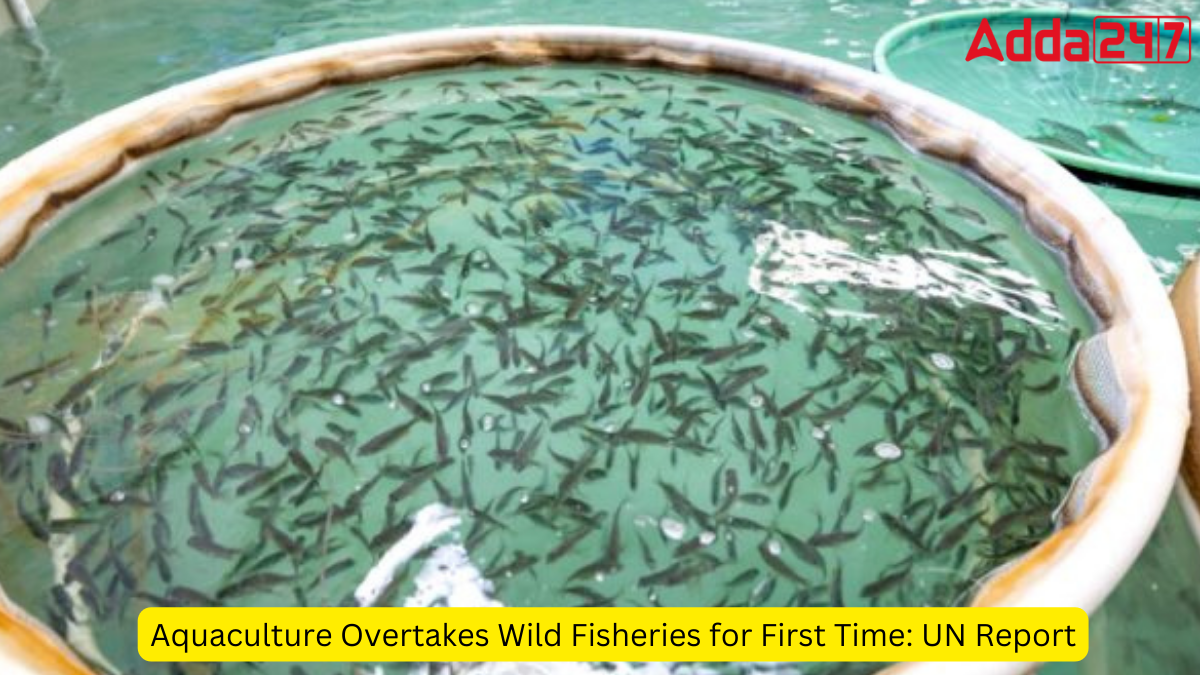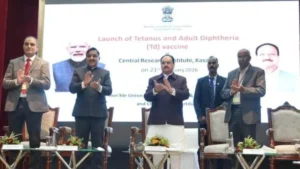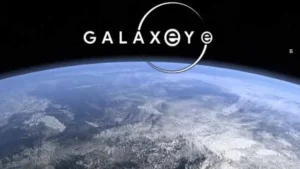The Food and Agriculture Organization (FAO) of the United Nations released The State of World Fisheries and Aquaculture 2024, its flagship report providing a comprehensive analysis of the global and regional status and trends in fisheries and aquaculture. It shows, for the first time in 2022, that aquaculture production exceeded fisheries.
About Aquaculture
Aquaculture is playing an increasingly important role in meeting the world’s food needs, surpassing wild fisheries in aquatic animal production for the first time. With global demand for aquatic foods expected to keep growing, an increase in sustainable production is vital to ensure healthy diets, the United Nations’ Food and Agriculture Organization said. In 2022, aquaculture yielded 94.4 million tons of aquatic animal production- 51 percent of the total, and 57 percent of the production destined for human consumption.
- Aquatic products remain one of the most traded food commodities, generating a record $195 billion in 2022- a 19 percent increase from pre-pandemic levels. “Despite these significant achievements, the sector still faces major challenges from climate change and disasters, water scarcity, pollution, biodiversity loss” and other man-made impacts.
UN Report on wild fisheries
The report contains eight key messages:
- World fisheries and aquaculture production hit a new high in 2022. Successful initiatives should be upscaled to consolidate the vital role of aquatic foods for global food security, nutrition and livelihoods.
- Aquaculture can meet the rising global demand for aquatic foods. Future expansion must prioritize sustainability and benefit regions and communities most in need.
- Global capture fisheries production remains stable, but the sustainability of fishery resources is a cause for concern. Urgent action is needed to accelerate fishery stock conservation and rebuilding.
- Global demand for aquatic foods is projected to increase further. Expansion of sustainable production is vital to ensure healthy diets from healthy oceans, lakes and rivers.
- Aquatic animal production is expected to increase by 10 percent by 2032. The Blue Transformation Roadmap aims to ensure sustainable fisheries and aquaculture growth while promoting equitable benefits and environmental conservation.
- Small-scale fisheries are a vital source of nutrition and the livelihoods for millions of people. Greater global recognition and action are needed to support and empower these communities.
- Efforts to improve data collection and analysis must be strengthened. They are key to evidence-based policymaking and the effective management of fisheries and aquaculture.
- Efforts to achieve the Sustainable Development Goal targets related to fisheries and aquaculture must accelerate. FAO urges the international community to step up action to support the implementation of the Blue Transformation Roadmap.




 Made in India: Nadda Launches Indigenous...
Made in India: Nadda Launches Indigenous...
 Reliance Announces ₹10 Trillion AI Inves...
Reliance Announces ₹10 Trillion AI Inves...
 GalaxEye’s AI-Powered OptoSAR Satellite ...
GalaxEye’s AI-Powered OptoSAR Satellite ...








